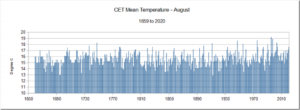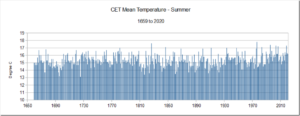by O. Rudgard, September 3, 2020 in ClimateChaneDispatch
Mining for renewable energy materials could threaten biodiversity, researchers have found.
Scientists at the University of Queensland, Brisbane found a high degree of overlap between areas used for mining essential minerals like lithium, which is used for car batteries, and areas with high levels of biodiversity as yet untouched by industry.
Conservationists are “often naive to the threats posed by significant growth in renewable energies”, the researchers said in the study published in the journal Nature Communications, pointing out that 14 percent of protected areas contain metal mines or have them nearby.
Overall, the researchers found that eight percent of mining areas were within the range of areas designated as protected by national governments, and seven percent were within the same range of key biodiversity areas.
Using this metric, 50 million square kilometers of the earth’s land surface is influenced by mining, with 82 percent of mining areas focused on elements needed for renewable energy production.
Elements including lithium, cobalt, and nickel are essential for rechargeable batteries, which are used for power storage in wind and solar projects, as well as in electric cars.
New mines are planned to target these substances, adding to the global surface area covered by mining activities.
…

by P. Homewood, September 3, 2020 in NotaLotofPeopleKnowThat
…
…
Whether we enter another period of AMO related cooling in coming decades remains to be seen. But what the data conclusively shows is that, as far as the UK is concerned, the recent rate of sea level rise is not unprecedented, nor is there any evidence of it accelerating.
…
by D. Wojick, September 2, 2020 in WUWT
The Institution for Chemical Engineers (IChemE) is a prestigious international group of scientists and professionals with over 35,000 members in about 100 countries. IChemE has been conducting what it calls a consultation on its draft Position Statement on Climate Change. This basically means that the members are invited to submit comments. Given that many engineers are skeptical of the climate scare, it will be interesting to see if all of these comments are made public.
The draft statement itself is pure alarmism. They say the science is settled, per the IPCC, and catastrophe looms. Here is the opening paragraph:
“Climate science is established – global climate change is upon us, exacerbated by human activities. IChemE accepts the veracity of the science and its conclusions published by the Intergovernmental Panel on Climate Change (IPCC). To avoid irreparable social, economic and environmental damage, it is essential that we accelerate our efforts to decarbonize our economic systems and stabilize the levels of greenhouse gases in the earth’s atmosphere, if we are to have any chance of limiting the global average temperature rise to 1.5 degrees C, beyond which catastrophic consequences are more likely. Action needs to be global and fair, recognizing the relative differences between regions, both in terms of historic contributions to emissions and vulnerability to the consequences of a warming planet.
Chemical engineers are uniquely placed to take action in the industries that contribute to greenhouse gas emissions to arrest and reverse the damage we humans are doing to the life support systems of our single, shared planet .” (Emphasis added).
Not only do they simply sing the IPCC song, they even get it wrong. Nowhere does the IPCC suggest that 1.5 degrees of warming (with one degree already on their books) is a threshold to catastrophe. In fact the Paris Accord target is still 2.0 degrees. The last sentence may explain IChemE’s fervent catastrophism. Its members are positioned to make huge sums of money doing the engineering to decarbonize the world. After all, CO2 emissions are typically the product of chemical reactions (including combustion).
…
by P. Homewood, September 3, 2020 in NotaLotofPeopleKnowThat
Despite a few warm days in early August, the month as a whole was not unusually hot, a full 1.6C cooler than August 1995, according to the Central England Temperature series. Other hotter Augusts include 1911, 1947 and 1975.
It was even colder than 1736 and 1899.
Summer as whole was even less remarkable, ranking 51st, tied with years such as 1701, 1731 and 1780.
The summers of 1976 and 1826 remain the two hottest on record, well above anything seen since.


https://www.metoffice.gov.uk/hadobs/hadcet/data/download.html
La géologie, une science plus que passionnante … et diverse



